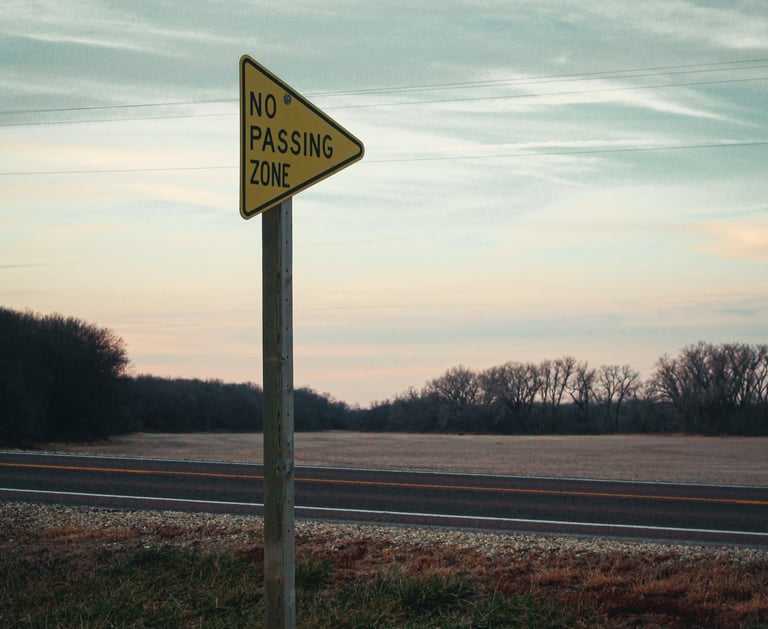You Created Those Boundaries For A Reason
You set your boundaries for a reason. Don’t let emotions convince you to make someone the exception. This post is your reminder that when you ignore the red flags, you often end up relearning the same painful lesson.
5/21/20252 min read
Boundaries aren’t just barriers; they’re blueprints. They are the personal guidelines you create after learning the hard way what drains you, what disrespects you, and what causes you to lose sight of yourself. They’re born from the late-night breakdowns, the friendships that left you empty, the relationships that chipped away at your self-worth, and the quiet realizations that something has to change.
And yet, when someone we deeply care about enters our lives, many of us find ourselves loosening those boundaries. “They’re different,” we think. “They mean well. They just don’t know better yet.” Or worse: “If I hold on too tightly to my boundaries, I might lose them.”
Let’s pause here.
That’s the trap: the belief that keeping someone around is worth abandoning yourself. That love, friendship, or closeness should come at the cost of your emotional safety. But here’s the truth—your boundaries were built for a reason, and the right people will never require you to break them to feel seen, heard, or loved.
Take this example: Maybe one of your boundaries is not tolerating passive-aggressive behavior. You’ve had relationships where communication was manipulative or unclear, and you left feeling emotionally disoriented. So you promise yourself: “If I ever sense that energy again, I’m walking away.”
Then someone comes into your life and starts doing just that—making backhanded comments, ignoring your concerns, making you feel like your sensitivity is the problem. But instead of walking away, you give them the benefit of the doubt. “They’re just sarcastic. They don’t mean any harm.”
So you stay. You shrink. You begin re-interpreting your own discomfort as overreaction. But deep down, you know: that uncomfortable feeling? That’s your boundary trying to get your attention. That’s your past self saying: “We’ve seen this before.”
The longer you ignore those warning signs, the louder the consequences become.
Boundaries are not about controlling others; they’re about respecting yourself. They’re a reflection of your healing. They are not rigid rules to keep people away; they are tools to protect the peace you’ve worked so hard to create.
And when someone comes into your life who feels “worth” bending the rules for, ask yourself: Am I trying to build something healthy with this person, or am I trying to make them fit into a space they were never meant to be in?
The right person won’t push you to compromise your healing. They’ll honor the process you’ve gone through to become who you are. And if someone shows you early on that they don’t respect your boundaries, don’t wait for more evidence. That moment is the clarity you’ve been trained to recognize.
When your boundaries are treated as optional, so is your self-worth.
So next time you feel yourself loosening your standards in the name of connection, remember: those boundaries were built from your strength, not your weakness. They are how you protect your energy, your peace, and your growth.
Protect them. Honor them. Let them filter out who’s meant for you—and who’s simply a lesson, not a lifelong presence.


Photo by Tate Bruggeman on Unsplash

maveline413@gmail.com
For Any Inquiries:
© 2025. All rights reserved.
